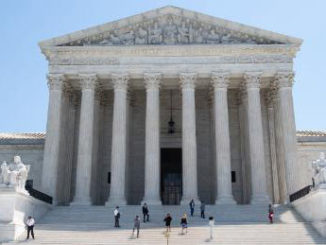
Analysis projects $189 million loss for Maryland’s General Fund
ANNAPOLIS, Md. (TIP): The Maryland Comptroller’s Office today released the 60-Day Report, an analysis of P.L 119-21 (One Big Beautiful Bill Act [OBBB]) and its expected impact on revenue administration and collection in Maryland. The Bureau of Revenue Estimates projects an estimated $189.3 million reduction in general fund revenue between fiscal year 2026 ($117.9 million) and fiscal year 2027 ($71.4 million).
The federal OBBB extends significant federal tax reductions enacted by the Tax Cuts and Jobs Act of 2017 (TCJA), modifies existing benefits, and establishes several new tax benefits. In response to the changes in the federal tax code, the state will automatically decouple from several provisions in the law that are expected to have a $5 million or greater impact on state revenues in fiscal year (FY) 2026. These provisions will not apply to Maryland taxes during tax year (TY) 2025.
These business income provisions include research and experimental expenses; the new qualified production property depreciation under Section 168(n); and modifications to the business interest deduction limitation. Decoupling from any provisions in the law beyond TY 2025 will require legislative action from the Maryland General Assembly.
During the upcoming 2026 legislative session, the General Assembly will consider whether to permanently decouple Maryland tax law from those provisions in the OBBB going forward. This will require state legislation.
“Recent tax code changes, as well as federal retrenchment and grant cancellations, have created complexity and uncertainty for taxpayers,” Comptroller Brooke E. Lierman said. “While we cannot eliminate this complexity, we remain committed to helping Maryland navigate these challenges. The data in this report will help policymakers and all residents understand how these changes will shape Maryland’s fiscal future.”
Maryland follows best practices and uses consensus revenue forecasting. Revenue estimates contain the most recent state revenue forecasts, analyses of the Maryland and national economies, and other valuable information. The analysis will be factored into subsequent forecasts by the Bureau of Revenue Estimates.
“I am proud of the Bureau of Revenue Estimates team for putting in the extra work to complete such a complex and thorough analysis in a short time,” Bureau of Revenue Estimates Director Robert Rehrmann said. “Our analysis reflects our commitment to provide clear, timely, and nonpartisan insights needed for policymakers to make informed tax policy decisions.”
The Maryland Board of Revenue Estimates will vote on an updated general fund forecast for FY 2026 and FY 2027 during its next meeting on September 25, 2025.





Wonderful blog! I found it while browsing on Yahoo News. Do you have any suggestions on how to get listed in Yahoo News? I’ve been trying for a while but I never seem to get there! Cheers